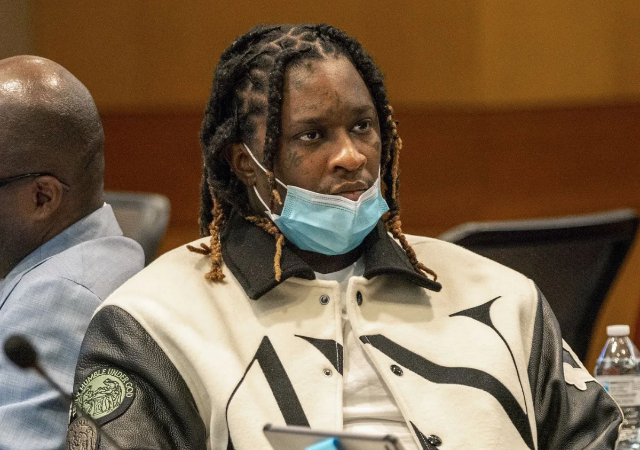Influential rapper Young Thug has emerged from behind bars following a landmark plea agreement that transforms his potential prison sentence into a 15-year probation term. The artist, legally named Jeffrey Williams, whose case has captivated the hip-hop community since his May 2022 arrest, secured his release on Thursday through a carefully negotiated deal that emphasizes rehabilitation over incarceration.
The resolution of this high-profile case marks the end of a chapter that sent shockwaves through the music industry when Williams, along with several members of his YSL Records label, was arrested on serious racketeering and gang-related charges. The case, which has become one of the longest-running criminal trials in Georgia’s state history, has sparked intense debate about the intersection of artistic expression and criminal justice.
According to details reported by The New York Times, the terms of Williams’ plea agreement reflect a significant shift toward restorative justice. The deal mandates that the rapper complete 100 hours of community service and, perhaps more significantly, requires him to conduct four anti-gang presentations to youth annually throughout his probation period. This requirement transforms the artist from an alleged gang leader to a potential agent of positive social change.
The resolution carries particular weight given the initial severity of the charges. The case against Williams and his YSL associates represented one of the most ambitious prosecutions of its kind, attempting to establish links between artistic content and alleged criminal activities. The outcome suggests a potential evolution in how the justice system approaches cases involving high-profile entertainment figures.
The length of Williams’ trial, which set records in Georgia’s judicial history, underscores the complexity of cases involving artistic expression and alleged criminal activity. The proceedings have sparked important discussions about the use of rap lyrics as evidence in criminal trials and the broader implications for creative freedom in hip-hop.
The terms of Young Thug’s probation appear designed to leverage his influence for positive community impact. The requirement to deliver anti-gang talks to young people suggests an acknowledgment of his potential role in deterring youth from gang involvement, turning his experience into a cautionary tale with constructive outcomes.
This case has drawn particular attention for its potential implications for the music industry, especially regarding how record labels operate and how artists express themselves through their work. The prosecution of YSL Records members raised questions about the fine line between artistic collaboration and criminal conspiracy, forcing the industry to reconsider how it approaches certain aspects of hip-hop culture.
The resolution of this case may set important precedents for future prosecutions involving high-profile entertainment figures. The emphasis on rehabilitation and community service over incarceration could influence how similar cases are approached in the future, potentially leading to more nuanced considerations of the relationship between artistic expression and criminal behavior.
For Williams personally, the plea agreement represents both an opportunity and a challenge. The 15-year probation period will require careful navigation of legal requirements while maintaining his artistic career. His required anti-gang presentations to youth could potentially reshape his public image and influence on young people.
The impact of this case extends beyond the immediate parties involved. It has sparked important conversations about the criminalization of hip-hop culture, the use of artistic expression as evidence in criminal proceedings, and the role of the justice system in addressing gang-related issues. The outcome may influence how future cases involving artists and alleged criminal activities are handled.
This resolution also raises questions about the effectiveness of alternative sentencing approaches in high-profile cases. The decision to emphasize community service and youth outreach over traditional incarceration reflects evolving attitudes toward criminal justice reform, particularly in cases involving influential public figures.
As Young Thug begins this new chapter, the music industry and legal observers will be watching closely to see how he manages the demands of his probation while maintaining his artistic career. His success or failure in meeting these obligations could have lasting implications for how similar cases are handled in the future and for the broader conversation about criminal justice reform in the United States.
The case’s resolution marks not just the end of a significant legal battle but potentially the beginning of a new approach to addressing the complex relationship between artistic expression and criminal justice in America’s legal system.




